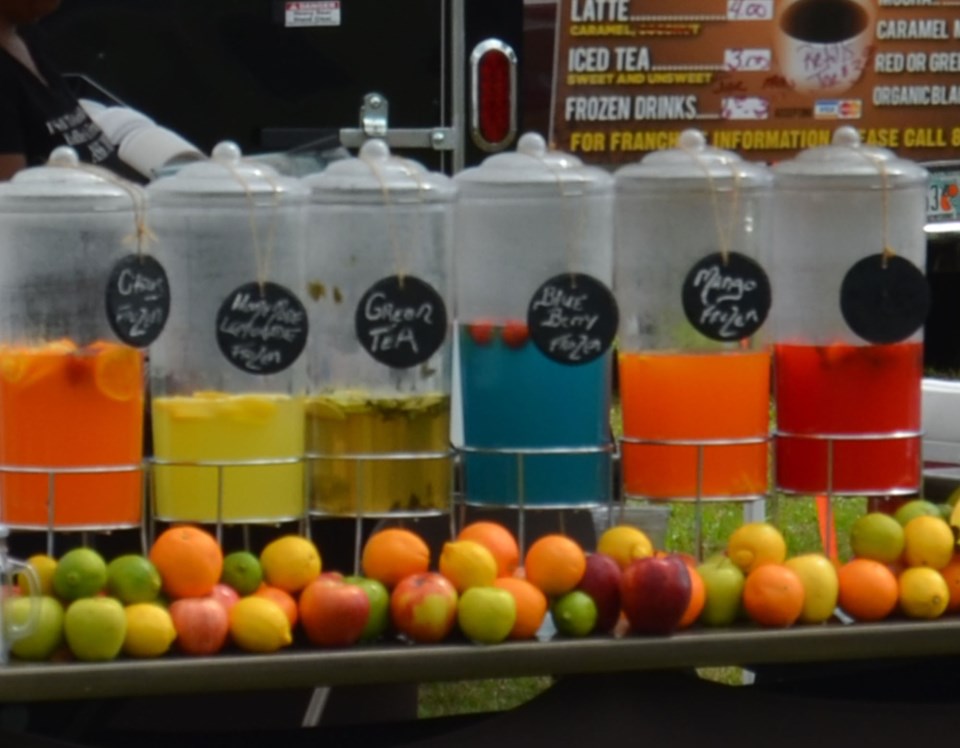I read an interesting article in the January issue of ‘Pivot’, our accounting magazine. It gave some insight into the rising costs of some vegetables. Important foods like kale. Kale, that crinkled leaf cabbage offspring weed that you now find in your salads, soups, smoothies, and in V9 juice. Tastes worse than broccoli to some people.
Kale that was selling at a dollar a pound jumped in price to two dollars a pound back 2014 when Gwyneth Paltrow endorsed the bitter leaves as being full of vitamins. People believed her and then Beyoncé wearing a Kale tee shirt got on the bandwagon creating a shortage of Kale which pushed the price up.
Remember when celery was affordable? You could get a nice stalk of the veggie that stirs Caesar drinks, holds creamed cheese, and adds flavour to a homemade soup or stew for about two dollars a bunch. In the spring of 2019 the price of celery jumped to ten dollars a bunch because some wellness author recommended drinking 10 ounces of celery juice a day saying it was a powerful herbal medicine. I like my celery but it was only recently when the fad faded that I started eating my celery cheese sticks again.
The price of limes took a huge leap in price back in 2014 when there was a crop failure in Mexico. The prices climbed and the drug cartels saw a chance to make some money, so they took over the lime farming in parts of Mexico. Limes went from $35 a case to $200 a case. Now this may not have been a calamity for you as not everyone likes a splash of lime juice in his or her gin and tonic on a hot summer day, but bartenders everywhere were forced to use lemons and trust me, lemons are good for lemonade but not in a G&T.
Not everyone cares for avocados and the fact that a shortage drove prices from $40 to $120 a case in 2017 may not have affected you. Those who enjoy a guacamole dip (unsaturated fat that tastes yummy) with their Tostitos corm chips may have noticed the jump in prices. Apparently a comment by an Australian about yuppies spending all their time eating avocados and drinking coffee instead of working created a backlash and an increased appetite for the fruit.
There was also an example of cauliflower becoming the new kale but let’s leave that one. The point being that the costs of our food can be driven by some very unusual actions of people with an audience. People promoting diets can drive the prices up on say Quinoa - those little seeds they now put in bread that becomes stuck in your teeth, or the dried cranberries that suddenly appeared in my English muffins. All these ‘new’ items add to the cost of our food because we cannot just eat plain good old-fashioned foods like those that our forbearers did. Darn those Etruscans for developing kale and broccoli - why weren’t they satisfied with cabbage the way nature intended us to eat our greens?
However, what caught my interest in this article was the potential to drive food prices down. If prices went up because of suggested benefits of a veggie, why, I thought, should they not go down if there is negative press? Let’s say that we get some well-known actor or sports hero to come out of the kitchen cupboard as it were, and proclaim that Decadent Chocolate Cookies are really bad for you. If Sid the Kid would say chocolate chip cookies were responsible for his scoreless streak, hockey kids everywhere would stop eating CC cookies: the surplus would drive prices down and you and I could enjoy a cheap snack on those scrumptious delights as we watch the Penguins falter.
I am thinking that the price of peaches is going down. Americans are so fed up with hearing about impeachment that the very mention of peaches raises their blood pressure. Doctors are warning their patients to avoid the word peach or risk hypertension. Since we don’t im-peach up here north of the border we should stock up now on the cheap peaches that the Americans will be dumping. Note to my favourite dessert maker: Peach cobbler is very tasty a la mode.
Why stop at food, you may be asking. If we could get some credible spokesperson to say that brand X gasoline is very bad for the health of your car, people would stop buying that perfectly good gasoline. The seller would suddenly have a surplus of fuel and would naturally drop the price to get rid of stock. We all know the gas price setters are in cahoots so everyone would drop their prices because so many of us would risk ruining our engines on cheap gas just because some actor or actress sold the media a bill of goods.
If we could just jump start hydroponic farming here in the area we could get our kale and chard fresh from the greenhouses all year round. Perhaps Invest North Bay is already working on rezoning land from residential to farming outside the Urban Service Area. Maybe the company we own could cut a deal on electricity for the vegetable hydroponic operations. All we need is a councillor to put on his or her farmer’s straw hat and get the project started.
Anyway, I thought the article an interesting example of how our lives and diet can be influenced by actions of others. In another article, a writer discussed the current inverse yield curve on bonds - that usually signals a recession. When short-term bond rates are higher than long-term rates, something is amiss. My futures market on kale is also inverted - that means I see little or no kale in my future.



